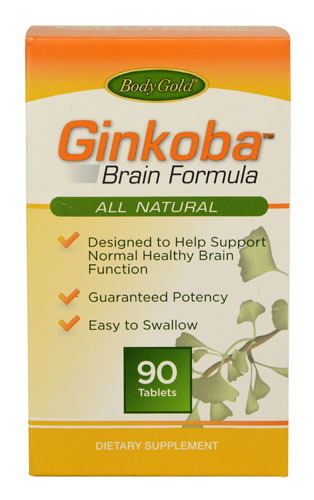Sometimes, our brains are like the skies of San Francisco — foggy.
While not a formally recognized medical condition, “brain fog” is real, and it affects millions of people for a variety of reasons.
This is how Urszula Klich, a licensed psychologist who leads health and wellness workshops around the country, describes brain fog:
“Patients feel like they can’t focus or concentrate to the point everything feels blurry, like they are literally in a fog. They have trouble remembering and may go back to the same room several times to try to recall what they were doing.”
Klich says brain fog can trigger frustration, sadness, anxiety and even depression.
“People start focusing on their forgetfulness and errors,” she says, “and worry about being able to be effective at home and work.”
Dr. Jacob Teitelbaum, a physician whose specialties include chronic fatigue syndrome and fibromyalgia, says brain fog can affect anyone at any age. However, it should not be confused with the cognitive dysfunction associated with Alzheimer’s disease and dementia, he says.
Brain fog typically consists of forgetfulness, confusion and diminished mental sharpness. But your reasoning skills remain intact, Teitelbaum says.
“Put simply, with brain fog, you keep forgetting where you left the keys,” says Teitelbaum, author of “From Fatigued to Fantastic!” “With Alzheimer’s [or dementia], you forget how to use the keys.”
While this fogginess can envelop anybody, there are certain people who are more susceptible to it than others.
Pregnant women
Dr. Alison Mitzner, a board-certified pediatrician in New York City, says hormonal changes during pregnancy contribute to brain fog, or “pregnancy brain.” However, that fog can persist after giving birth. “Mommy brain,” as this is called, can be due to hormonal changes, as well as stress, lack of sleep, dietary changes, lower iron levels and multitasking, she says.
How do you combat it? Mitzner recommends getting plenty of sleep and exercise. In addition, adjusting your diet might help.
Women approaching or going through menopause
It’s quite common for women who are on the brink of menopause or who just started coping with it to feel fuzzy-headed. It’s not clear what the cause is, although a decline in estrogen levels might be the culprit. Nonetheless, researchers have validated the connection between forgetfulness and menopause.
“The most important thing to realize is that there really are some cognitive changes that occur during this phase in a woman’s life,” Miriam Weber, a neuropsychologist at the University of Rochester Medical Center who has studied this link, says in a news release. “If a woman approaching menopause feels she is having memory problems, no one should brush it off or attribute it to a jam-packed schedule.”
How do you combat it? Among the prescriptions for easing menopause-related brain fog are sleep, exercise and proper diet. Another dose of advice: Realize that the brain fog most likely is temporary, not permanent.
People taking medication
Some types of prescription and over-the-counter drugs cause brain fog, according to WebMD.
How can you cope with it? If you sense that your thinking is dulled after taking a certain medication, consult a doctor or pharmacist.
People who’ve had chemotherapy
Researchers aren’t sure why people who’ve undergone anti-cancer chemotherapy suffer from “chemo brain,” a form of brain fog.
How do you combat it? The American Cancer Society lists sleep, physical activity, a veggie-filled diet and brain exercises as some of the remedies.
Sufferers of chronic fatigue syndrome
How do you combat it? Brain fog tied to chronic fatigue syndrome can be reduced by cutting back on physical activity, getting adequate rest, managing stress and limiting sensory overload, according to the CFIDS and Fibromyalgia Self-Help Program.
People with celiac disease
A study published in 2014 explained that people with celiac disease often struggle not only with intestinal problems but with brain fog, including trouble with mental tasks, attention and memory.
How do you combat it? The 2014 study found that sticking to a gluten-free diet can improve the physical and mental well-being of someone who has celiac disease.
People with autoimmune diseases like fibromyalgia, lupus and multiple sclerosis
Brain fog often accompanies autoimmune conditions such as fibromyalgia, lupus and multiple sclerosis.
How do you combat it? For fibromyalgia, the best medicine is getting a good night’s sleep and remaining active during the day, according to the Arthritis Foundation. The same holds true for lupus, with the National Resource Center on Lupus also recommending cognitive therapy.
As for multiple sclerosis, you can treat the symptoms of brain fog by ensuring you’re getting enough shut-eye, practicing meditation, doing aerobic exercise and following a Mediterranean diet, according to U.S. News & World Report. One study even showed that playing video games can help lessen brain fog in people with multiple sclerosis.
People with depression
Depression frequently leaves someone feeling foggy, with confusion, forgetfulness and detachment being some of the effects.
How do you combat it? Klich says that in addition to seeking medical care to treat the depression, making sure you get a proper amount of sleep and exercise can help relieve depression-oriented brain fog.
People who aren’t getting enough sleep
Most anyone who’s lacking in the sleep department has awakened at some point with a case of brain fog.
How do you combat it? This answer to this one is simple: Go to sleep! The National Sleep Foundation says every adult should snooze soundly for seven to nine hours a day.
Klich, the licensed psychologist, offers these general tips for overcoming brain fog:
- Use sticky notes to remind yourself about tasks.
- Always keep your keys, glasses, watch, purse or wallet in the same place so you can grab them when you need them.
- Tackle mentally challenging tasks when you have the most energy.
- When you’re trying to concentrate, eliminate distractions such as TV.
- Do one thing at a time.
- Talk frankly with friends and relatives about your difficulties.




